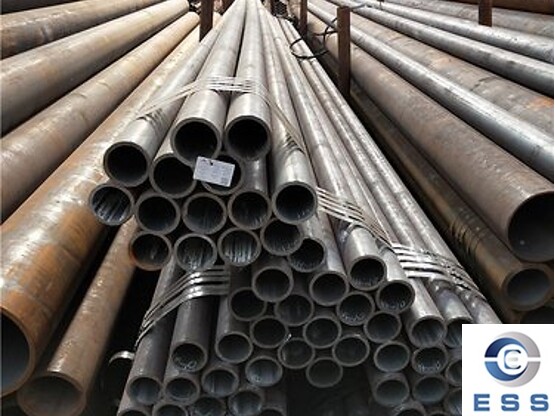
Preparation before welding
Before welding carbon
seamless steel pipes, sufficient preparation is required first. This
includes cleaning impurities such as oil and rust on the surface of the steel
pipe to ensure the quality of the welded joint. At the same time, it is also
necessary to check whether the size and specifications of the steel pipe meet
the requirements to avoid mismatches during welding. For some special
applications, such as hydraulic
tubes or boiler
tubes, the accuracy and material properties need to be strictly controlled.
Choose a suitable welding process
According to factors such as the material,
thickness and use requirements of carbon seamless steel pipes, it is very
important to choose a suitable welding process. Common welding processes
include manual arc welding, gas shielded welding, submerged arc welding, etc.
1. Manual arc welding
This is a commonly used welding method that
melts and connects the electrode and steel pipe metal together through the high
temperature generated by the arc. It is simple to operate and has strong
adaptability. It is suitable for welding of small scale and simple structures.
It can be used for welding in various positions, such as welding with some pup joints and valve connection parts, but the welding quality is greatly affected by the welder's
technical level.
2. Submerged arc welding
Use welding wire as electrode to weld under
the flux layer. High welding efficiency, good weld quality, small welding
deformation, but the equipment is more complicated. It is suitable for straight
seam welding in large-scale and high-efficiency production. It is commonly used
in the manufacturing process of heat
exchanger tubes and large carbon
steel pipe structures.
3. Gas shielded welding
Use inert gas or active gas as the
protective medium, such as carbon dioxide gas shielded welding. The welding
speed is fast, the weld is beautiful, and there is less spatter during welding.
However, it has high requirements for the welding environment to prevent gas
mixing from affecting the welding quality. It is suitable for occasions with
high requirements for weld quality.
4. Argon arc welding
Using pure argon as the shielding gas can
effectively prevent oxidation and nitridation during welding, and the welding
quality is high. It is especially suitable for occasions with high requirements
for welding quality, such as casing pipe welding in the chemical and petroleum industries, but the cost is high.
Operation steps
1. Beveling
According to the wall thickness of the
steel pipe and the welding process requirements, a suitable bevel is made at
the part to be welded. This helps to ensure the penetration and forming quality
of the weld.
2. Butt joint and positioning
Butt the two carbon seamless steel pipes to
be welded together and fix them with clamps or other tools to ensure that they
will not move or misalign during the welding process.
3. Preheating and slow cooling
For thicker-walled steel pipes or when
using high-energy density welding methods, it may be necessary to preheat the
steel pipe to reduce welding stress and prevent cracks. Similarly, slow cooling
after welding is completed is also beneficial.
4. Welding operation
According to the selected welding process,
weld in accordance with the corresponding operating specifications. Pay
attention to controlling parameters such as welding current, voltage, speed,
etc. to ensure the quality and beauty of the weld.
5. Weld cleaning and inspection
After welding is completed, clean the weld
to remove welding slag and other impurities. Then perform visual inspection and
internal quality inspection (such as X-ray flaw detection, etc.) on the weld to
ensure that the weld is defect-free and meets the requirements.
Inspection standards for completed
welding
After welding is completed, the weld joints
of carbon seamless steel pipes need to be strictly inspected. This includes
appearance inspection, dimensional measurement, mechanical property testing,
and non-destructive testing. Only when all inspection indicators meet the
requirements can the welded joint be judged as qualified.
Summary
In summary, the welding method of carbon
seamless steel pipe involves multiple links and steps, which requires welders
to have rich professional knowledge and practical experience. Through correct
operation methods, reasonable process selection and strict inspection
standards, the welding quality and safety of carbon seamless steel pipe can be
ensured.













 Eastern Steel Manufacturing Co.,Ltd not only improve product production and sales services, but also provide additional value-added services. As long as you need, we can complete your specific needs together.
Eastern Steel Manufacturing Co.,Ltd not only improve product production and sales services, but also provide additional value-added services. As long as you need, we can complete your specific needs together.










